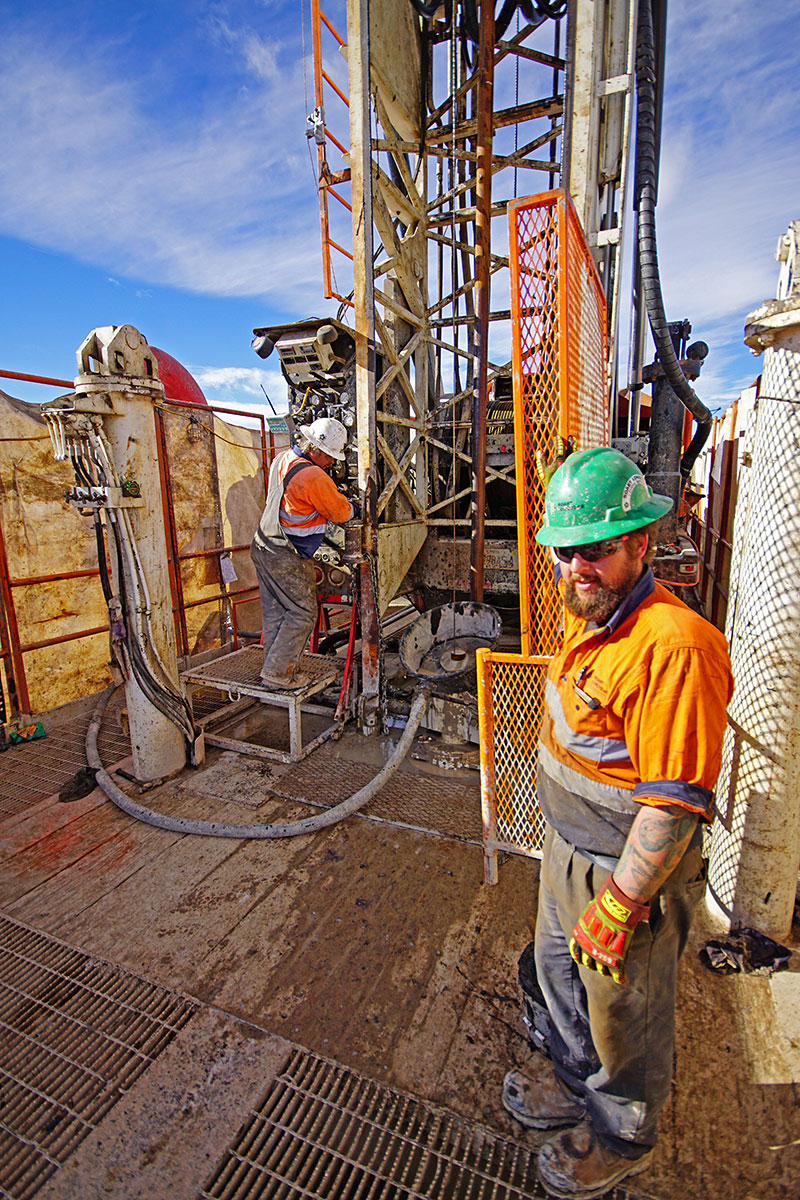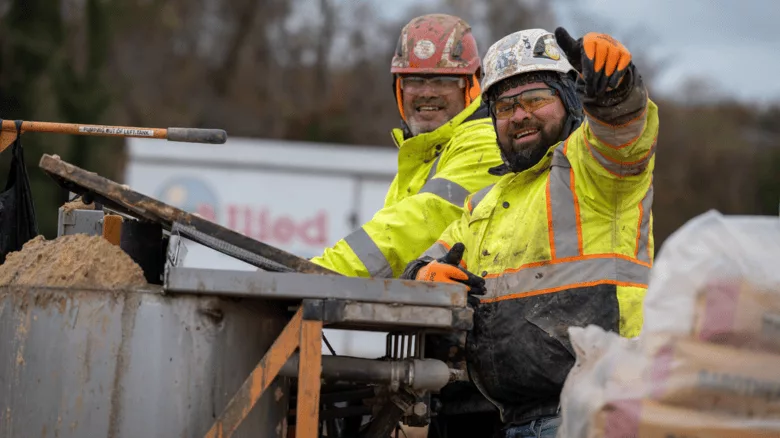Are you thinking about a career as a driller but don’t know where to start? Choosing the right path can feel overwhelming, especially when you want a job that suits your skills and goals.
This guide will help you understand what being a driller really involves and how to decide if it’s the right fit for you. By the end, you’ll have a clear picture of what steps to take next, so you can confidently move forward in building a rewarding career.
Keep reading to discover how to make your choice easier and smarter.
Article Summary
Career Pathways For Drillers
Choosing a career as a driller offers many options. The field has different paths to explore. Each path has unique jobs and skills. Understanding these paths helps find the right fit. This section explains common drilling jobs, industries, and entry points.
Types Of Drilling Jobs
Drilling jobs vary by method and purpose. Some drillers work with oil and gas wells. Others focus on water well drilling. There are drillers who specialize in mining operations. Environmental drilling is another area. Each job requires different tools and techniques. Skills grow with experience and training.
Industries That Hire Drillers
Several industries need drilling experts. Oil and gas companies hire many drillers. Mining companies use drillers to extract minerals. Construction firms need drillers for foundation work. Environmental agencies use drilling for soil testing. Some drillers work in geothermal energy. The variety allows drillers to choose a field that suits them.
Entry-level Positions
New drillers often start as helpers or assistants. These roles provide hands-on experience. Learning on the job builds essential skills. Some employers offer formal training programs. Certifications can improve job chances. Entry-level jobs lead to more advanced positions. Patience and hard work help career growth.

Credit: www.nyserda.ny.gov
Essential Skills For Drillers
Choosing a career as a driller means learning important skills. These skills help you work well and stay safe. Drilling requires a mix of technical knowledge, physical strength, and safety awareness. Understanding these skills can guide your path in this field.
Technical Abilities
Drillers must know how to operate drilling machines. They read blueprints and follow detailed instructions. Basic mechanical skills help in fixing minor machine problems. Using tools correctly is important to keep work smooth. Learning to monitor equipment helps prevent breakdowns.
Physical Requirements
Drilling work needs physical strength and stamina. Lifting heavy parts and standing for long hours is common. Good hand-eye coordination helps in controlling machines. Being able to work outdoors in different weather is key. Physical fitness reduces injury risks on the job.
Safety Knowledge
Safety is very important for drillers. Knowing safety rules protects yourself and others. Using protective gear like helmets and gloves is a must. Understanding emergency procedures saves lives. Regular safety training keeps skills sharp and updated.
Education And Training
Education and training form the foundation for a successful career as a driller. This field demands practical skills and knowledge about machinery, safety, and procedures. Proper education ensures you operate drilling equipment safely and efficiently. Training helps you understand the technical aspects and meet industry standards.
Certifications And Licenses
Many drilling jobs require specific certifications and licenses. These prove your ability to handle equipment correctly and follow safety rules. Common certifications include OSHA safety training and commercial driver’s licenses. Some states or employers need special permits to operate heavy machinery. Obtaining these credentials increases your job chances and shows professionalism.
Vocational Schools And Courses
Vocational schools offer courses tailored to drilling careers. These programs teach mechanical skills, safety protocols, and basic geology. Courses usually last a few months to a year. They provide hands-on experience with drilling tools and machines. Attending these schools helps build a strong skill set for entry-level jobs.
On-the-job Training
Most drillers start with on-the-job training. This learning happens under the supervision of experienced drillers. You gain real-world skills while working on drilling sites. Training covers equipment operation, maintenance, and safety practices. This experience is crucial to develop confidence and improve performance.
Evaluating Your Interests And Strengths
Choosing a career as a driller starts with knowing yourself well. Understanding your interests and strengths helps you find the right fit. This step guides you toward a job you will enjoy and do well in. Take time to evaluate what suits you best.
Assessing Physical And Mental Fit
Drilling work is often tough on the body and mind. You need good physical strength and stamina. Long hours and heavy equipment require strong endurance. Mental focus is important too. You must stay alert in changing conditions. Check if you handle stress and physical tasks well.
Passion For Outdoor Work
Drillers spend much time outside. Weather can be hot, cold, or rainy. Enjoying outdoor work helps you stay motivated. If you like fresh air and nature, this career suits you. Being comfortable outside makes daily tasks easier and more fun.
Problem-solving Skills
Drilling often brings unexpected problems. Equipment may break or ground conditions may change. Quick thinking helps solve these issues fast. Being calm and clear-headed under pressure is key. Good problem-solving skills improve safety and job success.
Job Market And Salary Expectations
Choosing a career as a driller involves understanding the job market and salary expectations. This knowledge helps set realistic goals and plan your career path. The drilling industry changes with economic shifts and energy needs. Knowing what to expect can guide your decisions and increase job satisfaction.
Industry Demand
The demand for drillers depends on the energy sector and construction projects. Oil and gas exploration drives much of the drilling work. Renewable energy projects, like geothermal drilling, also create jobs. Demand varies by location and global market trends. Skilled drillers remain valuable due to the technical nature of the job.
Salary Ranges
Driller salaries vary based on experience, location, and industry. Entry-level drillers earn less but can increase income over time. Average salaries typically range from $40,000 to $80,000 per year. Specialized drillers in oil fields may earn higher wages. Overtime and hazardous work conditions often add to pay.
Career Advancement Opportunities
Career growth is possible through experience and training. Drillers can advance to supervisory or technical roles. Some move into equipment maintenance or safety management. Certifications improve job prospects and salary potential. Continuous learning keeps your skills relevant and marketable.

Credit: www.boartlongyear.com
Tips For Job Hunting
Job hunting as a driller requires focus and clear steps. Knowing how to present yourself helps you stand out. Follow simple tips to increase your chances of success. Focus on your resume, network with others, and prepare well for interviews.
Building A Strong Resume
Create a clear and simple resume. List your drilling skills and experience first. Use bullet points to make information easy to read. Include any safety training or certifications you have. Highlight teamwork and problem-solving skills. Keep your resume to one page if possible.
Networking Strategies
Talk to people already working as drillers. Join local or online groups related to drilling. Attend job fairs or industry events. Ask for advice or job leads. Connect with former classmates or trainers. Networking can open doors to hidden job opportunities.
Preparing For Interviews
Practice common interview questions about drilling tasks. Show you understand safety rules and equipment use. Dress neatly and arrive on time. Speak clearly and confidently. Bring copies of your resume and certificates. Prepare questions to ask the interviewer about the job.
Common Challenges And How To Overcome Them
Choosing a career as a driller means facing some common challenges. These challenges can be tough but knowing how to handle them helps you succeed. This section explains the main difficulties and ways to overcome them. It prepares you for the reality of the job and helps you stay safe and balanced.
Dealing With Harsh Working Conditions
Drillers often work outdoors in bad weather. Heat, cold, rain, or wind can make the job harder. Wearing the right gear protects your body. Layered clothing works well for changing weather. Take breaks in shaded or warm areas to rest. Staying hydrated is important. Proper gear and rest keep you strong and focused.
Managing Work-life Balance
Drilling jobs can mean long hours and time away from family. Planning your schedule helps keep balance. Use your days off to relax and connect with loved ones. Set clear boundaries between work and home time. Good rest at home improves your work performance. Balance prevents burnout and keeps you happy.
Handling Job Site Risks
Job sites have many safety risks. Heavy machines, falling objects, and loud noises are common hazards. Always follow safety rules and wear protective equipment. Stay alert and communicate clearly with your team. Attend safety training regularly to learn new precautions. Being careful reduces accidents and keeps everyone safe.

Credit: www.thedriller.com
Frequently Asked Questions
What Skills Are Essential To Become A Successful Driller?
Key skills include mechanical aptitude, attention to detail, and physical stamina. Good communication and safety awareness are also vital for drillers.
How Do I Get Training To Become A Driller?
Training options include vocational schools, apprenticeships, and on-the-job programs. Certifications improve job prospects and demonstrate industry knowledge.
What Career Paths Are Available For Professional Drillers?
Drillers can advance to supervisory roles, equipment maintenance, or specialized drilling sectors. Experience opens opportunities in management and technical fields.
What Safety Measures Should Drillers Always Follow?
Drillers must wear protective gear, follow protocols, and conduct equipment checks. Staying updated on safety standards prevents accidents and injuries.
Conclusion
Choosing a career as a driller takes thought and care. Understand the job’s tasks and daily work clearly. Consider the skills you have and want to learn. Think about your goals and what you enjoy doing. Talk to people who work as drillers for advice.
Training and safety are very important in this field. Take your time to explore your options well. A careful choice leads to a job you like. Start with small steps and keep learning. Your career as a driller can grow with effort.